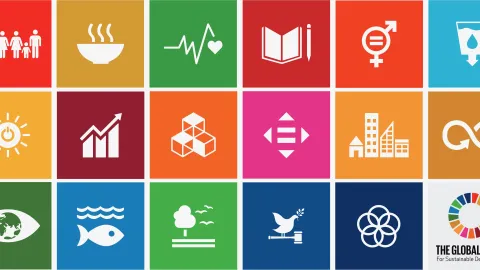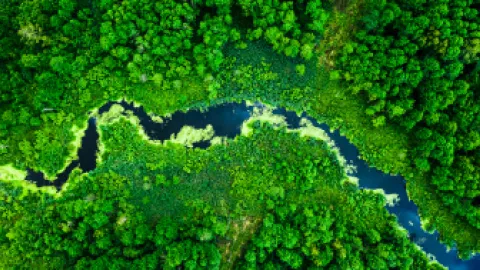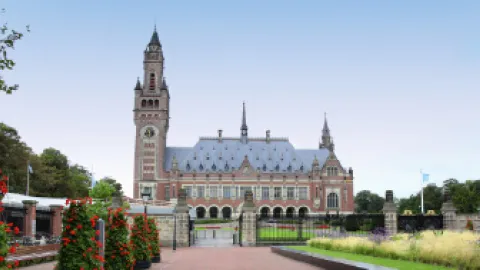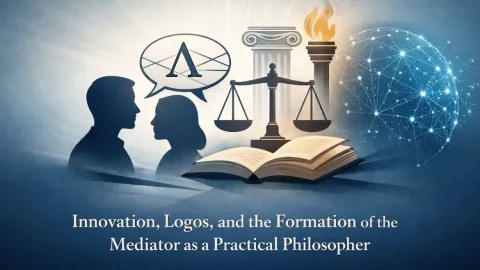The World Mediators Alliance on Climate Change?
February 28, 2020
“The ground is so wet; it wasn’t like this in the past. We can’t get started on this year’s soil preparation.”
In a recent mediation involving farmers, this was the response to my early inquiry about how things were going, generally. These days, I find that the topic of climate change and its effects arises, incidentally, quite often in mediations across a whole range of topics.
Last week, I attended a seminar addressed by the chair of the UK Health Alliance on Climate Change (UKHACC: http://www.ukhealthalliance.org/about/). The UKHACC brings together doctors, nurses and other health professionals to advocate for responses to climate change that protect and promote public health. It coordinates action, provides leadership and helps amplify the voices of doctors, nurses and other healthcare professionals across the UK. The chair was both articulate and forthright about the risks we all face, the effects on healthcare and the opportunities for health care professionals to do things differently to help mitigate the impact.
That got me thinking. Many of us have argued for years that mediation and encouraging interest-based negotiation is a demonstration of a sustainable, efficient, cost-effective alternative to an otherwise energy-consuming, expensive, carbon intensive process we call litigation. In many ways, mediation is a classic example of finding a better way to use scarce resources which would otherwise be diverted to less purposeful activity, helping to reduce unnecessary cost, saving time and labour, building more enduring, creative outcomes and renewing what might otherwise be dissipated energy. In other words, traditional zero sum, adversarial, win/lose paradigms are bad for the planet, while mediation fits into the model of environmentally friendly options.
If these propositions are broadly correct, what might that mean for mediators and our own practices?
Well, it suggests we can even more confidently promote what we do in the context of what will need to be rapid and wide-ranging changes to the way people do business. We can help in the initial stages of deal-making and alliance building, throughout the duration of projects and contracts in our role as conflict management specialists and, of course, down the line if and when disputes arise and need to be addressed quickly and effectively. This may only be achieved with a step change in what we do and how we do it, a quantitative shift in how and when we are utilised.
Secondly, it may mean that we need to consider how we go about what we do. Recently, I was invited to speak in Brussels about Mediation and Climate Change (for my full text, please email me at [email protected]). I can fly from Edinburgh to Brussels in just over 90 minutes. That would have been the preferable way to travel if I wanted to maximise my time to do other things before the event at which I was speaking. However, I chose to go by train, which involved a five-hour journey to London on the evening before, an overnight stay in London and catching an early morning Eurostar train to Brussels, another journey of nearly two hours. This meant that I had to plan my time differently and could not try to pack in an additional piece of work on the preceding day.
We are deeply committed to our calling. Many of us try to do a lot each week. But what are the implications for our mode of travel? What effect does it have on our carbon footprint? Might we mediators need to think about these things, such as the frequency of, and how we get to and from, our mediations? Is there someone more local who could do the job? And what about other aspects of what we do? Does everybody who attends mediation need to be there? Do we need to have folders of papers in hard copy form? Or could we all survive with only electronic transmission of documents? Probably? Perhaps many of us do so already.
We regularly travel far to attend conferences. How sustainable is that? What are the alternatives? How can we optimise our use of such travel as we do undertake?
I appreciate that this leads us to consideration of online dispute resolution and conferencing. Clearly that has a huge role to play as we seek to reduce travel and time spent. However, I was impressed recently to read about the contrast in the brain’s responses to online socialising and physical meeting. The comparison was made between the addictive dopamine hit you get from a social media connection and the rich stew of oxytocin, prolactin and endorphins provoked by “real, actual human contact" (see The Changing Mind by Daniel Levitin). There will often be no substitute for meeting in a physical location. Perhaps, at least, what I am exploring here is about how to make those occasions when mediation is best done face to face as environmentally friendly as possible.
So, to wrap up: anyone for a World Mediators Alliance on Climate Change? WoMACC has a ring to it. To mirror the UKHACC, WoMACC would advocate for responses to climate change that protect and promote environmentally friendly dispute management and resolution. It would coordinate action, provide leadership and help amplify the voices of mediators across the globe. It would be our contribution to humanity’s survival and thriving.
You may also like










Charlie Irvine
Thanks John, a point well made. It's surprising how readily you can get used to meeting online, or creatively using a combination of text and face-to-face via platforms like Zoom. Perhaps it's time for some sort of mediator pledge to use the least environmentally damaging form of communication possible in any situation.
Ian Macduff
Thanks John. The idea of a global alliance of mediators/facilitators on climate change is a splendid one - and I’d want to ensure that the ‘catchment’ for that group included those beyond the conventional professional groups of mediators, given the susceptibility of - for example - small island states to the impact of climate change. As Barry Lopez write so eloquently (see his “Horizon”), there are rich veins of indigenous wisdom to call on in such cases. Your practical point about the ways in which we meet and travel is also absolutely right - as is the awareness that we still need the human aspect of face to face contact; but need to think about how important that overseas flight really is. One of the climate scientists here in NZ resolved not to fly, internationally or domestically, for year - no international conferences but joining in, as Charlie notes, by the array of technologies we have - and travelled by electric car, train etc.